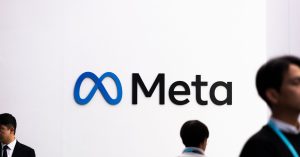When it comes to navigating times of recent upheaval, few industries have had to navigate change as much as the world of search engine optimization. It’s been chaotic, to put it mildly.
After surviving the seismic shifts of Google’s Helpful Content Update, rolled out in the fall of 2022, SEO professionals were caught up in the uproar ignited by OpenAI’s ChatGPT program in early 2023. By February, Google was issuing guidance regarding artificial intelligence-created content. Then, in March, it released its first core algorithm update of 2023, followed by a page experience adjustment in April and a significant reviews system update.
May then arrived, and with it, the annual Google I/O developer conference; it was here that the Alphabet Co. announced the gradual rollout of a new update for its helpful content system. The update is designed to help the company take into account personal and expert points of view, integrating a high value placed on experience when it comes to its search results and rankings system.
Suppose we step back and consider the myriad changes throughout 2022 and 2023; we sift through the haze of the “AI vs. Human” content creation debate. Clearing out all the confusion, we can hone in on core principles of “people-first content creation” moving forward.
For a truly impactful user experience, designers must prioritize every part of Google’s E-E-A-T guidance: Experience, Expertise, Authoritativeness and Trustworthiness. When paired with an effective page experience, quality content will satisfy the algorithm and, most importantly, the visitors.
Related: Small Businesses Can and Should Consider Investing in AI Technology — With a Cautious Approach
Google’s Helpful Content Update and the emphasis on people-first content
In late 2022, Google completed its Helpful Content Update rollout, a major course adjustment designed to be a haymaker punch against a glut of SEO-first content. The goal was to better recognize and reward websites that prioritize people-first content.
The company fights a relentless battle against content with little-to-no value, the meaningless content that clutters up the internet and endlessly frustrates web users searching for — you guessed it — truly helpful content. Google has long been committed to ensuring a quality user experience for everyone that uses its search engine, and rightly so. Website visitors deserve not just high-quality content but easy-to-find resources.
The company’s Q2 2023 core update in March carried intentions similar to the initial Helpful Content Update. The company explained, “The changes are about improving how our systems assess content overall.”
First announced in May, the new wave of changes is driven by the same motivation. In addition to a new “Perspectives” filter designed to highlight the relevant experiences of others in search results, the gradual update also aims to find the “hidden gems” often lost in “unexpected or hard-to-find places.”
Quality content matters, whether from AI or human effort
In February 2023, Google clarified its position on AI-generated content, clearing up the confusion that had been brewing. The company prioritizes high-quality content, regardless of whether humans or machines generate it.
On the Google Search Central Blog, the company wrote, “It’s important to recognize that not all use of automation, including AI generation, is spam. Automation has long been used to generate helpful content.” More so, it continued, “AI can power new levels of expression and creativity, and serve as a critical tool to help people create great content for the web.”
This is the heart of the matter: AI is a tool, not a comprehensive replacement. It is one tool among many in the creator’s toolbox.
However, it is abundantly clear using automation or AI strictly to manipulate rankings in search results is viewed as a violation of the company’s spam policies. The company has a long track record of prioritizing the integrity and trustworthiness of high-quality content.
Related: How to Make Great Content — And Get More Views
Intention is key to Google’s algorithm
When creating content, it’s important to begin by clarifying your intention. What is the purpose of a website’s content? The search algorithm is finely tuned to identify the markers of generic content designed only to snag the attention of the crawlers that scout the nooks and crannies.
Operate with the intent to provide “original, valuable content that offers a satisfying experience,” and you’ll set yourself up for success, with the caveat for content creators that any final product “adheres closely to their area of expertise.” In 2023, experience may be a finalist for the SEO industry’s themes of the year.
Three questions can serve as effective guardrails during the creative process; Google recommends asking: Who? How? Why?
- Who authored it? Is the byline easy to find? Is further information about the author(s) accessible or evident?
- Is it clear how a piece of content was created? Is there evidence to substantiate the information given? Was automation or artificial intelligence used in the creative process? If so, why?
- Why was the content created? Specifically, how is it helpful or useful for visitors?
Adding an E to E-A-T: the importance of evident experience
Above all, Google’s ranking systems aim to identify content demonstrating expertise, experience, authoritativeness, and trustworthiness (E-E-A-T). In December 2022, Google added the second E for experience.
They’ve recognized the importance visitors place on the validity of the information. They want to see evidence of relevant experience that an author possesses. The more the visitor believes in the author’s experience and knowledge, the more they are likely to trust the authority and trustworthiness of the content, and the better their overall experience.
Related: How to Outrank AI-Generated Content With Expertise, Authoritativeness and Trustworthiness
Focus on quality content to boost user experience, regardless of how you attain it
One constant throughout the evolution of Google’s search algorithm is the importance of the user’s experience. Ensuring quality websites populate for any query is the foundation of retaining visitors. A positive user experience encompasses many elements outside of content quality, like a site’s page performance — but ultimately, content is king.
However you decide to integrate AI technology into your creative process, the quality of and intention behind the content and the level of expertise made evident should serve as your guideposts to the sustained success of your website.
Read the full article here










